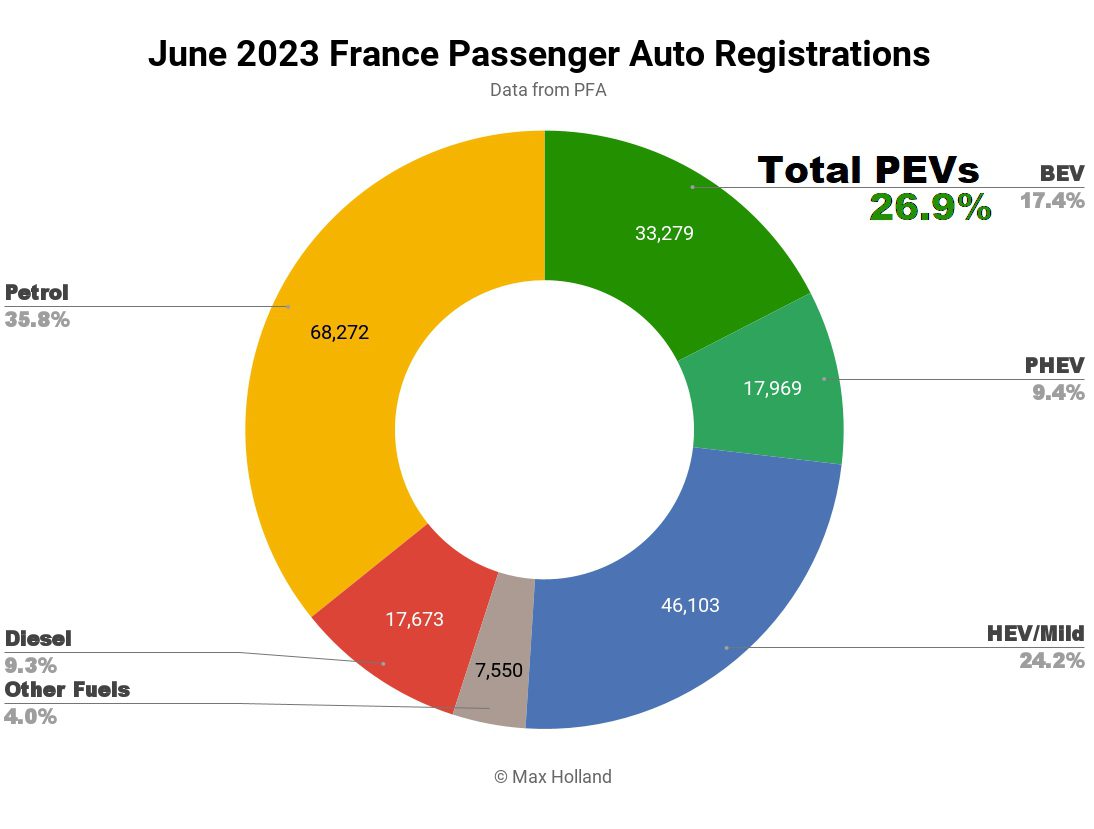Volkswagen is cutting shifts and production on its electric vehicle lines at its Emden plant in Germany despite surging June EV sales figures in Europe. The company says the production cuts are due to “strong customer reluctance” to buy their EVs.
According to German newspaper Nordwest-Zeitung, Volkswagen was canceling the late shift in the production of the ID.4 and ID.7 electric SUV and sedan for 14 days. The paper also reported that the three-week holiday for employees working on EVs would be extended by an additional week.
Further to this, Volkswagen also recently announced that 300 of the 1,500 temporary workers at the Emden plant would no longer be employed from August.
“We notice the reluctance of customers in the electrical world very vehemently,” works council chief Manfred Wulff told Nordwest-Zeitung noting that demand is almost 30 per cent below original forecast production figures.
However, the problem seems to be more to do with Volkswagen’s EVs rather the overall “electrical world” with EV sales booming in Europe.
In France EV market share grew in June from 12.8% to 17.4% year-on-year according to Max Holland from Clean Technica.

France’s record EV sales were boosted by Tesla which sold 8,301 EVs in June, up 146% year-on-year from 3,807 in June 2022. In Germany 42,790 BEVs were sold in June, up 46% on June 2022.
The huge growth in EV market share in Europe’s two largest car markets is reflective of global trends with the world’s number one and two EV makers also chalking up record sales numbers in June.
Earlier this week Tesla reported record global sales numbers delivering 466,140 in the second quarter of 2023 smashing its Q1 sales record by 10%. Year-on-year Q2 sales were up a staggering 83% over Q2 2022, as shown in the graph below from Roland Pircher.

And the trend continued in Australia with EV market share hitting a record 8.8% in June led also by the Tesla Model Y which leapfrogged the Ford Ranger ute to become the second best selling car of any type in Australia behind the Toyota Hilux.
Despite huge demand globally and in its home nation of Germany, Volkswagen can’t seem to get traction with its EV offerings. The company attributed some of the decline in demand to reduced subsidies for EV buyers in Europe and the impact of inflation however these factors haven’t slowed sales growth for Tesla.

Daniel Bleakley is a clean technology researcher and advocate with a background in engineering and business. He has a strong interest in electric vehicles, renewable energy, manufacturing and public policy.

